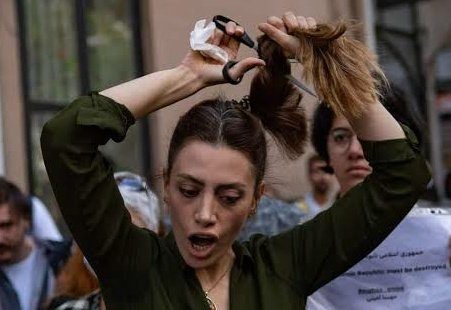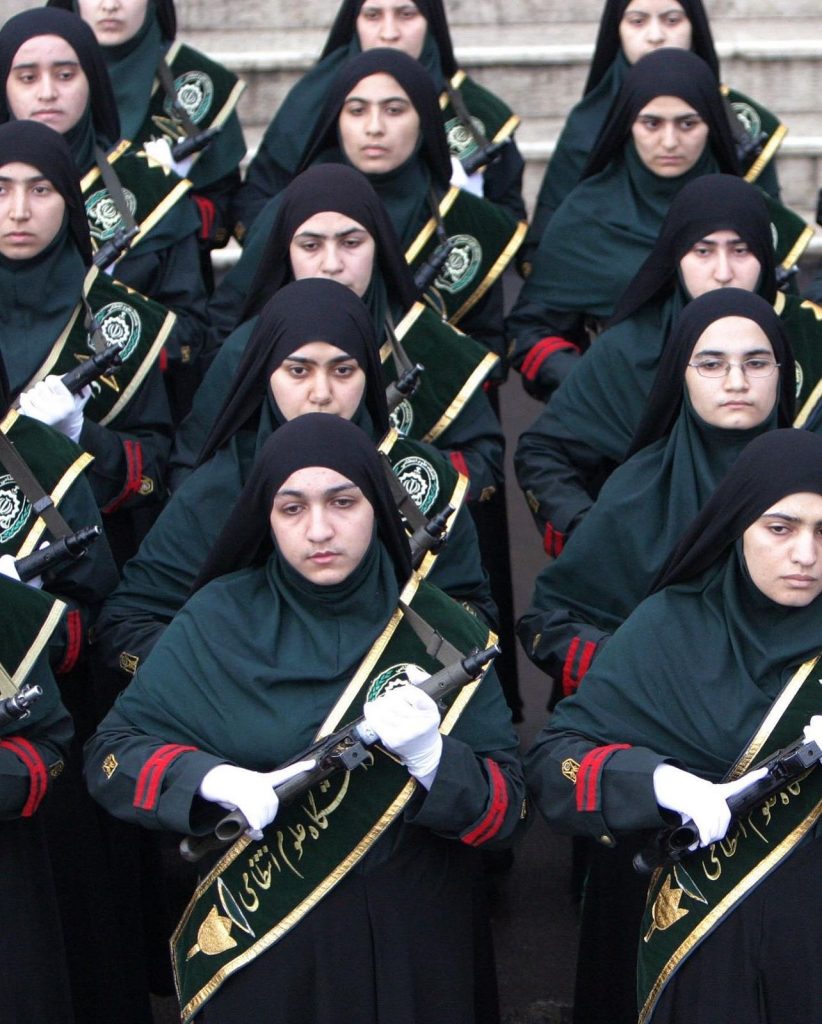Australia/Israel Review
Has Iran suppressed the ‘Hijab Protests’?
Aug 30, 2023 | Yoni Ben Menachem

Iran is tensely approaching the one-year anniversary of the tragic death of Mahsa Amini. The 22-year-old Kurdish woman died in hospital on September 16, 2022, after being detained by Iranian morality police in Teheran for improperly wearing a hijab, or Islamic headscarf. While the official account is that she fell into a coma after suffering a heart attack at the police station, according to eyewitnesses and leaked medical scans, her death was caused by police brutality.
Following her death, a tsunami of unrest, dubbed the “Hijab Protest”, surged throughout Iran. The regime has brutally suppressed the protests, including with the use of live ammunition against protesters.
More than 500 protesters lost their lives and more than 20,000 individuals have been arrested. Shockingly, seven protesters were executed following convictions for assaulting Iranian security personnel.
According to the Associated Press, mysterious toxic gas poisoning also hit almost 300 girls’ schools around the country.
Iran’s “Basij” volunteer militia, an auxiliary branch of the Islamic Revolutionary Guard Corps, lost 70 security personnel.
Amini’s death has become a symbol of resistance against Iran’s dictatorship and the oppression of women within the country.
Mandatory hijabs are not just pieces of cloth
Iranian women have been challenging the mandatory hijab law since its enactment after the country’s 1979 Islamic Revolution.
The movement gained momentum, especially after 2017 when Vida Movahedi climbed onto a utility cabinet in Teheran, attached her white headscarf to a pole and brandished it as a protest flag. She, and the women who emulated her, served time in prison.
While Iran has succeeded in quelling the recent protests, a sense of discontent simmers beneath the surface, threatening to erupt anew on the anniversary of Amini’s tragic death.
Iran’s security forces are already preparing for the possibility of renewed unrest throughout the nation.
Despite years of persistent protests, the hard-line regime remains steadfast in its staunch opposition to the popular demand for the freedom to choose whether or not to wear the hijab.
Iranian President Ibrahim Raisi, infamously known as “The Butcher of Teheran,” declared in early August his commitment to eradicating the practice of hijab removal across the country. During a press conference commemorating fallen Iranian Revolutionary Guards in Syria and Iraq, Raisi confidently proclaimed: “There is no need for concern; we will undermine the hijab removal movement.”
Raisi’s words insinuated that the protest was not spontaneous but organised and intentional, hinting at the regime’s plans to confront anyone involved in what it perceives as a scheme by Iran’s adversaries.
The Iranian regime has historically accused the United States, Israel and the United Kingdom of fomenting protests against the government.

In response to the hijab protests, Iran has introduced an all-female police unit equipped with submachine guns (Image: Twitter)
The Iranian Parliament is contemplating a new law imposing unprecedented penalties on women who choose to discard the hijab.
However, the legislative process in Iran is advancing slowly, as some parliamentarians fear backlash from constituents in the upcoming February parliamentary elections.
In July, following ten months of protests, the Iranian Interior Ministry reinstated morality police patrols to address the growing trend of hijab removal among Iranian women.
Employing a combination of surveillance cameras and artificial intelligence, Iranian police can identify those who do not adhere to the hijab requirement.
Cruel and unusual punishments
The Iranian authorities have even shut down businesses, restaurants and companies that fail to enforce proper hijab-wearing. Women driving without their hijab have had their cars confiscated.
Public spaces are now under the watchful eye of the Iranian police, with officers conducting vehicle and foot patrols to ensure women comply with hijab regulations.
In a recent development, Iranian authorities prohibited a short film festival after the organisers paid tribute to artist Sawsan Taslimi by displaying a sticker from a 1982 film in which she appeared without a hijab.
Despite the harsh crackdown on the hijab protest in recent months, the potential for resurgence remains.
Iranian women persist in defying the edict. They are unwilling to relinquish their quest for freedom and choice.
Yoni Ben Menachem, a veteran Arab affairs and diplomatic commentator for Israeli radio and television, is a senior Middle East analyst for the Jerusalem Centre for Public Affairs (JCPA). ©JCPA (www.jcpa.org), reprinted by permission, all rights reserved.
Tags: Iran






